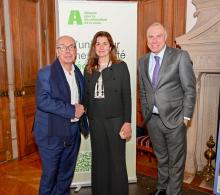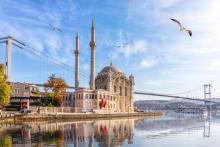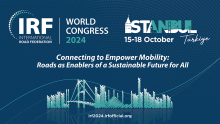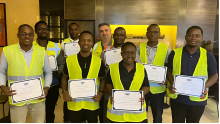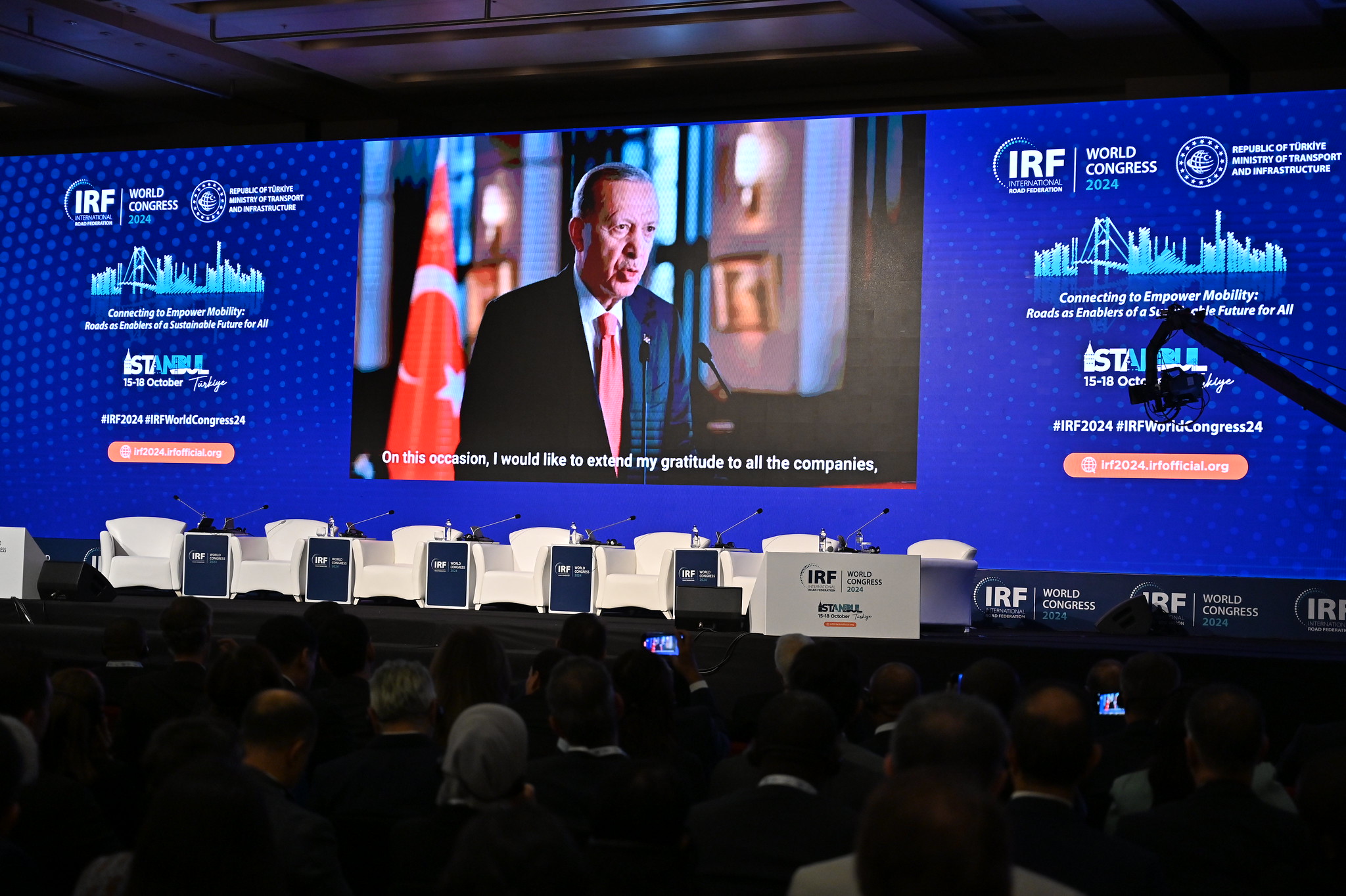
Organised by the International Road Federation (IRF) in collaboration with the Ministry of Transport and Infrastructure of the Republic of Türkiye, the IRF World Congress took place from 15 to 18 October 2024 in Istanbul. The event welcomed over 2,000 participants from more than 80 countries, including over 30 ministers, international organisations, and prominent public and private sector stakeholders.
In his opening address, Recep Tayyip Erdoğan, president of the Republic of Türkiye, highlighted the essential role of infrastructure in a nation’s development, reflecting the theme of the 2024 Congress: Connecting to Empower Mobility: Roads as Enablers of a Sustainable Future for All. “Roads are civilisation,” stated president Erdoğan. “Roads mean transport, industry, production, tourism, trade, safety, development, and integration with the world.”
Collaboration and the necessity of speaking with a collective voice to support the sector were central themes in the opening remarks by IRF president Dimitris Mandalozis. He reminded attendees that, “For over seven decades, the IRF has united public and private sector, fostering partnerships that deliver meaningful impact. This is the core of who we are and what we do as a Federation” he said. “Today, amidst global challenges our collective voice as a transport community and not just as a federation is more important than ever. Sustainability is not a choice – it is an imperative” he continued. “Let us seize this moment to raise a strong, united voice that says NO to road deaths and injuries and YES to a decarbonised, resilient and sustainable transport that leaves no one behind,” Mandalozis concluded.
The Ministerial Meeting, held during the Congress, brought together over 30 ministers alongside representatives of international organisations, providing a platform to explore transformative pathways for transport systems. Guided by shared goals of resilience, sustainability, and inclusivity, discussions addressed key themes essential to the future of the sector.
The discussions emphasised the need for infrastructure capable of withstanding climate change and supporting clean energy goals. These aspirations are achievable through innovative financing models and robust public-private partnerships, deemed critical for sustainable progress.
Inclusivity was another central topic of the debate. From urban to rural areas, calls focused on expanding pedestrian and cycling networks, enhancing public transport, and implementing low-emission solutions—key elements for building more connected and inclusive societies.
Technology was recognised as a driving force behind this transformation, with digital tools such as intelligent transport systems considered essential for improving efficiency, conserving resources, and fostering decarbonisation.
The Congress concluded with a call to action and a joint commitment from all stakeholders to prioritise resilience, accessibility, and environmental responsibility to shape a future where mobility is efficient, equitable, and accessible to all.



